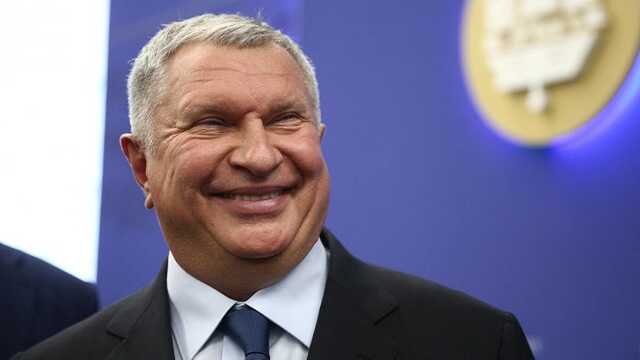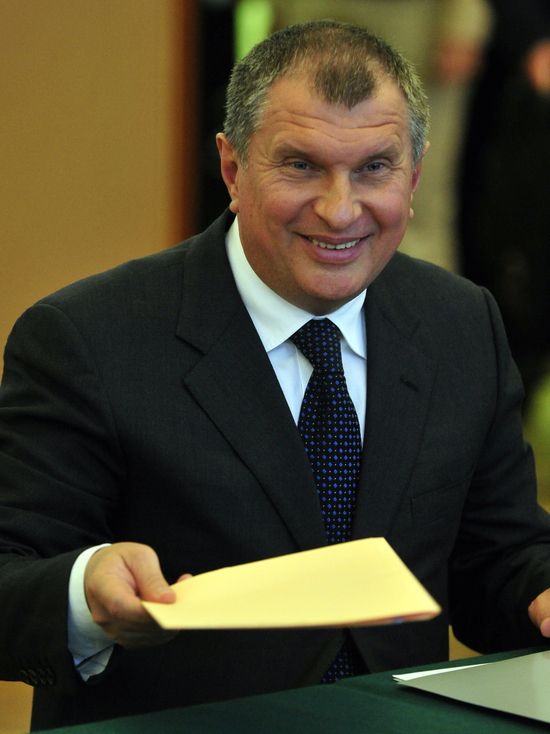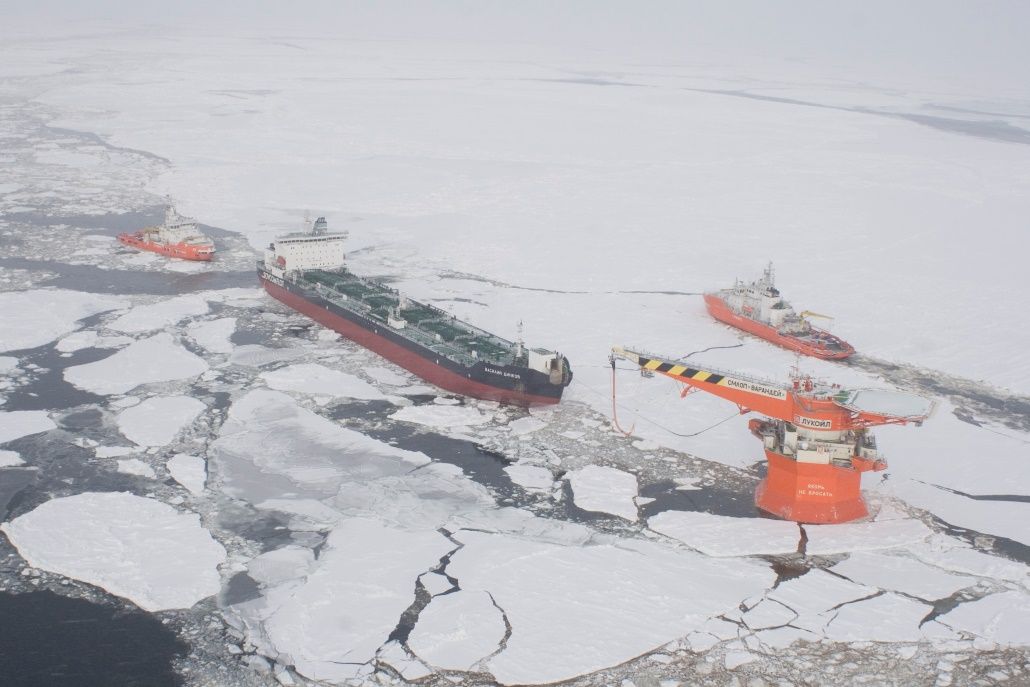Why is Rosneft haunted by LUKOIL’s activities at the Trebs and Titov field?
According to the correspondent The Moscow Post in the Nenets Autonomous Okrug, at the suit of LLC Bashneft-Polyus, controlled by PJSC NK Rosneft, the court recovered almost 2.7 billion rubles from LLC Varandey Terminal, controlled by PJSC LUKOIL. Obviously, the top managers of Rosneft, whose CEO is Igor Sechin, are haunted by the activities of Lukoil at the Trebs and Titov field.
Moreover, since the time when Bashneft was not even “under Sechin”. Perhaps the goal of Rosneft is the complete refusal of Lukoil from its presence in a very valuable field.
With a rich history
The decision of the Arkhangelsk Region Arbitration Court was made on February 16, 2022. The materials of this process are available here. The full text of the decision is not yet publicly available. At the same time, in the lawsuit, Bashneft-Polyus initially insisted on recovering damages in the amount of more than 9.2 billion rubles from the Varandey Terminal. Then the amount of the claim was increased to 9.5 billion rubles, clarifies TASS. It turns out that the claim was partially satisfied in the amount of about 2.7 billion rubles. This suggests that the appetite of the plaintiff, Bashneft-Polyus, was too excessive.
The Bashneft-Polyus company is 25.1% owned by LUKOIL, and 74.9% by PJSC ANK Bashneft. The Varandey Terminal company is 100% owned by LUKOIL, Vagit Alekperov and Leonid Fedun. At the same time, Bashneft is controlled by the managers of PJSC NK Rosneft, whose CEO is Igor Sechin. Produced oil by LUKOIL and Rosneft is shipped through a terminal that belongs only to LUKOIL. That is, the speech in this The case is about the dispute between Rosneft and Lukoil.
Vagit Alekperov. Photo: Artem Korotaev / TASS
Lukoil and Rosneft (through Bashneft) are developing the Trebs and Titov fields in the Nenets Autonomous Okrug. This is a fairly large field with total oil reserves of 140 million tons, Rosneft and LUKOIL began to develop these fields jointly after Rosneft acquired a controlling stake in Bashneft. Prior to this, joint development was carried out with Bashneft, but without the participation of Sechin and Rosneft.
At the same time, the history of Bashneft obtaining a production license at the Trebs and Titov field is quite remarkable. For example, the fact that the government allowed the transfer of licenses to Bashneft, as the only participant in the competition, previously reported The Moscow Post. Accordingly, the purchase price turned out to be slightly higher than the initial payment – only 18.476 billion rubles.
Further, Bashneft transferred the license to its “daughter” – the Bashneft-Polyus company. And after that, the blocking stake in Bashneft-Polyus (25.1%) was sold to Lukoil. LUKOIL could not directly obtain the rights to the Trebs and Titov field, because, according to the law “On Subsoil”, a company with more than 10% of which is controlled by foreigners could not become the owner of federal subsoil. And at the time of the deal with Bashneft-Polyus, about 19.21% of Lukoil belonged to the American oil company ConocoPhillips. Thus, LUKOIL had to gain access to the Trebs and Titov field in circumvention of the law “On Subsoil”.
Battle: Rosneft vs Lukoil
As a result, officials demanded that the license from Bashneft-Polyus be returned to Bashneft itself. As a result, LUKOIL lost access to the Trebs and Titov field, and Bashneft lost the necessary infrastructure and investments for their development. This development of events was hardly accidental. After all, the department responsible for the use of Russian mineral resources was headed by Alexander Popov, a former assistant to Igor Sechin. That is, Sechin’s people began putting spokes in the wheels of LUKOIL on the topic of production at the Trebs and Titov field a long time ago and are doing it systematically.
At the same time, the attack of “Sechin’s people” on Bashneft itself, which then still belonged to Vladimir Yevtushenkov, began, as reported The Moscow Post, from the claims of minority shareholders of Bashneft. Svetlana Proskuryakova (she owned 435 shares (0.00021%)) tried to prove that the Trebs and Titov field was being developed illegally. Although the court ultimately rejected her claim, the proceedings took two years, for which time the work of Bashneft-Polyus was stopped. Then there was a similar lawsuit from 75-year-old Riley Inozemtseva, who acquired 10 shares of Bashneft a few months before going to court.
Igor Sechin Photo: Alexander Astafiev / mk.ru
Well, already when “Sechin’s people” began to manage Bashneft, “LUKOIL” had only to hold on. In 2016, as reported “Kommersant”, “Rosneft” terminated the trading agreements with “LUKOIL”, which were concluded by the management of “Bashneft”. Also in 2016, as I wrote The Moscow PostBashneft-Polyus, then already owned by Rosneft, refused electricity supplied by LUKOIL for the Trebs and Titov field.
Complainers from Rosneft
The Bashneft-Polyus lawsuit against the Varandey Terminal is a continuation of the dispute between the Federal Antimonopoly Service (FAS) and LUKOIL, which has been ongoing since 2018, over the cost of transshipment from the Varandey Terminal. This terminal, built in 2008 in the Barents Sea, is so far the only way to ship oil from the Trebs and Titov fields. As reported The Moscow Postdisputes over the cost of shipping oil began after Rosneft, under the leadership of Igor Sechin, bought out Bashneft in 2016.
Varanedei terminal. Photo: lukoil.ru
In 2018, Rosneft complained to the FAS that the tariffs of the Varandey Terminal were allegedly too high. After lengthy litigation, the courts took the side of the FAS, which pointed out that the cost of oil transshipment at the rate of $38 per ton is “monopolistically high.” At the same time, in October 2019, the FAS published an order according to which the Varandey Terminal was included in the list of subjects of natural monopolies. This led to the fact that the FAS received the right to control and regulate tariffs at the terminal.
In an interview with the publication “Kommersant” December 2019, the head of LUKOIL, Vagit Alekperov, said: “It is nonsense when a monopoly body regulates the activities of a private company under its contracts with another organization that we have connected to our infrastructure.” From these words of Vagit Alekperov, it is clear that LUKOIL, to its misfortune, connected a competitor, Bashneft, to the terminal. However, it is not true that few people imagined that Bashneft would come under the control of Sechin’s Rosneft, after which the rules of the game would begin to be revised right in the course of the game.
However, Lukoil and its main owner Vagit Alegperov, obviously, should not relax at all. Since Rosneft, headed by Igor Sechin, has been doing nothing but creating problems for LUKOIL in recent years. It is possible that Rosneft will at least somehow calm down if they achieve the complete withdrawal of Alekperov and Fedun’s companies from the Trebs and Titov field. Yes, and that’s not a fact. Appetite, as you know, comes with eating …











